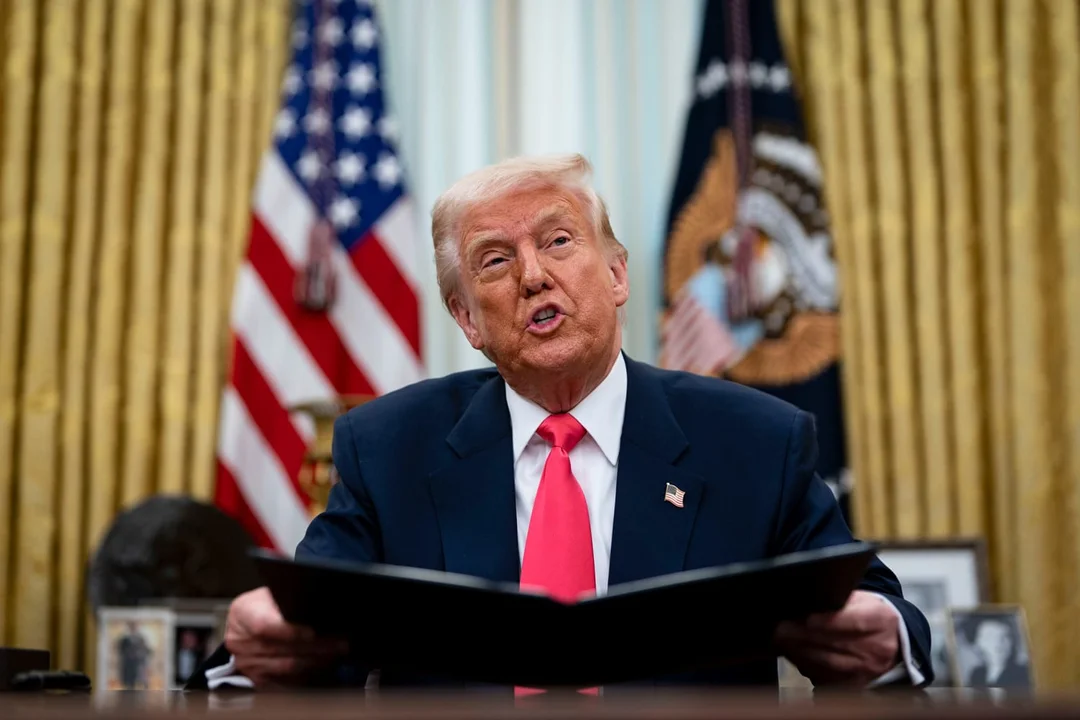
Trump’s Tariff Strategy Set for April 2: Economic and Political Implications
Former President Donald Trump is gearing up to implement a significant tariff policy on April 2, a move that could reshape the U.S. economy and influence voter sentiment ahead of upcoming elections. The policy, dubbed 'Liberation Day' by Trump, aims to impose tariffs on a wide range of imports, with a particular focus on countries that have not reciprocated U.S. trade policies.
Analysts predict that these tariffs could lead to increased prices for consumers, as businesses pass on the additional costs. The economic impact is a subject of intense debate, with some experts warning of potential inflation and others suggesting that the tariffs could bolster domestic industries. Trump has promised to be lenient on countries that engage in reciprocal tariff agreements, hinting at a nuanced approach to international trade.
The political ramifications are equally significant. Trump's tariff strategy is seen as a bold bet to win over voters skeptical of free trade agreements. Critics argue that the policy could alienate key voter demographics concerned about rising costs, while supporters believe it demonstrates a strong stance on protecting American jobs.
As April 2 approaches, the nation watches closely to see how Trump's tariff policy will unfold and its effects on both the economy and the political landscape.
Related issues news
What are the dirty 15 countries?
Last year, it was in descending order: China, the EU, Mexico, Vietnam, Taiwan, Japan, South Korea, Canada, India, Thailand, Switzerland, Malaysia, Indonesia, Cambodia and South Africa.
What is a reciprocal tariff?
The Reciprocal Tariff Act (enacted June 12, 1934, ch. 474, 48 Stat. 943, 19 U.S.C. § 1351) provided for the negotiation of tariff agreements between the United States and separate nations, particularly Latin American countries.